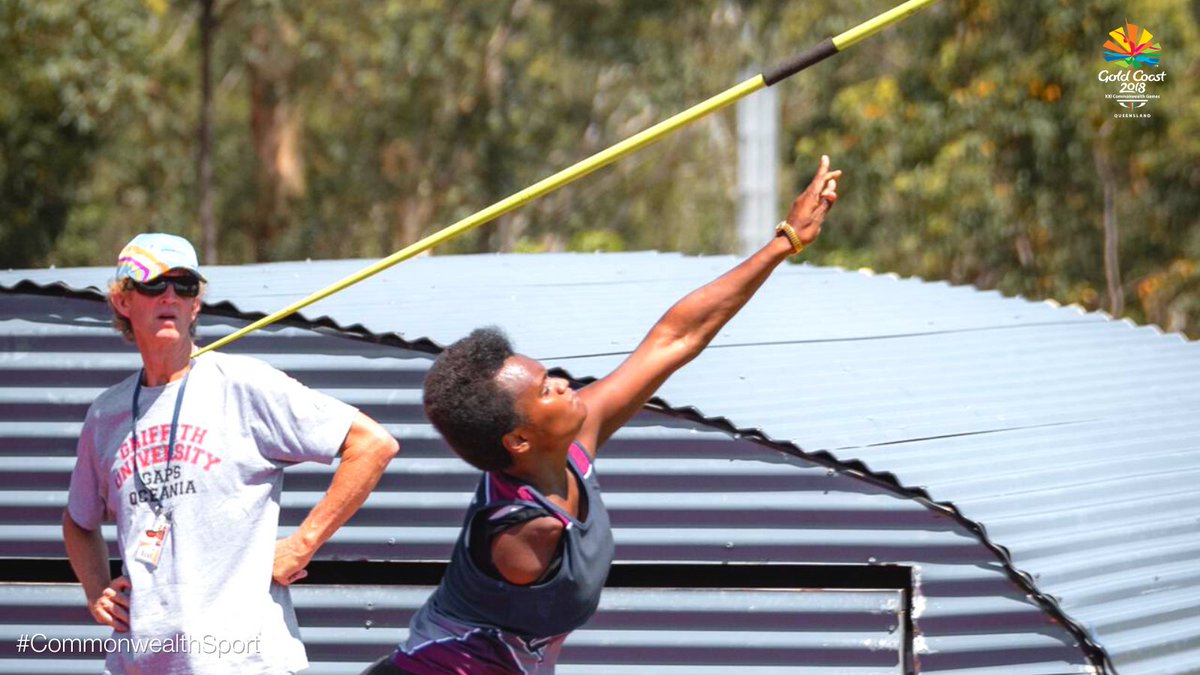Seven years ago, 18-year-old Friana Kwevira, a woman with a disability from Vanuatu, attended a coaching session organised by the Commonwealth Games Foundation. It was an experience unlike any other for Friana, who described it as the first time she felt treated like a human being.

A year later, Friana made history in Australia by winning the first-ever Commonwealth Games medal for Vanuatu, taking bronze in the women’s F46 javelin throw.

Friana’s victory turned her into a national hero, breaking barriers for women with disabilities and women athletes in general. Her success sparked a shift in how many families in Vanuatu perceived and treated those with disabilities.
Inspired by Friana, one mother, hopeful for a better future for her daughter with a disability, took her to a local school in Vanuatu and asked if her daughter could now receive an education.
“That is the impact sports opportunities can have,” stressed Chris Jenkins OBE, President of the Commonwealth Games Foundation, on 3 July 2024.
He was speaking at an event on ‘Empowering Women: Disability and Inclusion in Diplomacy through Sport’ hosted by the Commonwealth Secretariat, the High Commission of Antigua and Barbuda to the UK, and Women in Diplomacy.
Addressing a gathering of high commissioners, athletes, campaigners and youth leaders at the Secretariat’s headquarters in London, Chris said: “Sport can change mindsets. It starts those conversations and helps people open their eyes to recognise people with disabilities for who they are.”
Inclusion for all
This theme of inclusion resonated throughout the event, as speakers from across the Commonwealth unpacked what women with disabilities can achieve when given opportunities.
Anne Wafula Strike MBE, a British Paralympian and the Secretary-General’s Champion for Equality in Sports, shared her personal story of defying societal limitations placed on her and creating a fulfilling life for herself.
Born in a small village in Western Kenya, Anne lost the full use of her legs after contracting polio at the age of two. Growing up, she was the frequent target of exclusion.
Anne recounted: “When my classmates played in school, I was ignored and told to look after their belongings. My teachers did not know how to include me.”
The discrimination toward Anne was such that her family had to move to Nairobi, where she got educated and began teaching.
Many years later, Anne moved to the UK, where she joined a gym hoping to lose weight.
That decision introduced her to Paralympic sports for the first time and began a journey that would see Anne compete in wheelchair racing at the World Championships and Paralympic World Cups.
Reflecting on her journey, Anne told the attendees that the only thing separating a person with a disability from everyone else was opportunity, adding that sport is a “great equaliser” capable of breaking down barriers.
Now a committed activist at the age of 55, Anne shared that the reaction of her former classmates to her achievements was one of surprise.
“They were asking how did this happen,” Anne recalled. “My answer is simple: opportunity.”
Anne urged the attendees to recognise the barriers athletes with disabilities face throughout their journey, not just celebrate what they accomplish in elite sporting events.
Doing so, Anne Wafula Strike continued, requires countries to treat the issue of disability as a priority, not as an afterthought, citing the London 2012 Paralympic Games as a compelling case for the benefits of inclusion.
Research shows that the London 2012 Paralympic Games had an overwhelmingly positive impact on public attitudes towards people with disabilities.
A similar message was echoed by prominent women with disabilities from different professions.
Not all disabilities are visible
“Sport is a powerful vehicle for change,” said Carla Qualtrough, Canada’s Minister of Sport and Physical Activity and a three-time Paralympics bronze medal winner.
She addressed the event as the Chair of the upcoming Commonwealth Sports Ministers Meeting to be held on 25 July on the margins of the 2024 Olympic Games.
“People with disabilities are reminded every day that the world was not built with our needs in mind,” she added.
Minister Qualtrough described policymaking as another powerful opportunity to bring about change, adding that it could address stigma, discrimination and exclusion if people with disabilities are given a voice in the process.
Gill Atkinson, who recently served as the Deputy High Commissioner of the UK to Nigeria and was diagnosed with epilepsy at the age of 30, credited her success, in managing a decades-long career as a diplomat alongside her disability, to resilience.
“Not all disabilities are visible,” she reminded the attendees.

HE Karen-Mae Hill, Antigua and Barbuda’s High Commissioner to the UK, highlighted sports as a champion of inclusion.
“Sport shows us that ability is exceptional and everyone can achieve excellence,” she said, hoping that the event would inspire countries to be truly inclusive of women with disabilities.
Other speakers, including Bangladesh’s High Commissioner to the UK, HE Saida Muna Tasneem, proposed a raft of proposals to ensure equal opportunity and protection for women with disabilities.
These included dedicated Commonwealth Paralympic Games, programmes to tackle high levels of violence against women with disabilities and quotas to ensure people with disabilities have a say in government decisions affecting them.
The event’s outcomes will contribute to the discussions at the upcoming Commonwealth Sports Ministers Meeting.
“Our lives will not change unless we all change,” was the impassioned message of Anne, sitting in a wheelchair, to the attendees. “As a Black woman with a disability, life is a constant battle from the moment I wake up to the moment I go to bed.”
Media contact
-
Snober Abbasi, Senior Communications Officer, Communications Division, Commonwealth Secretariat



